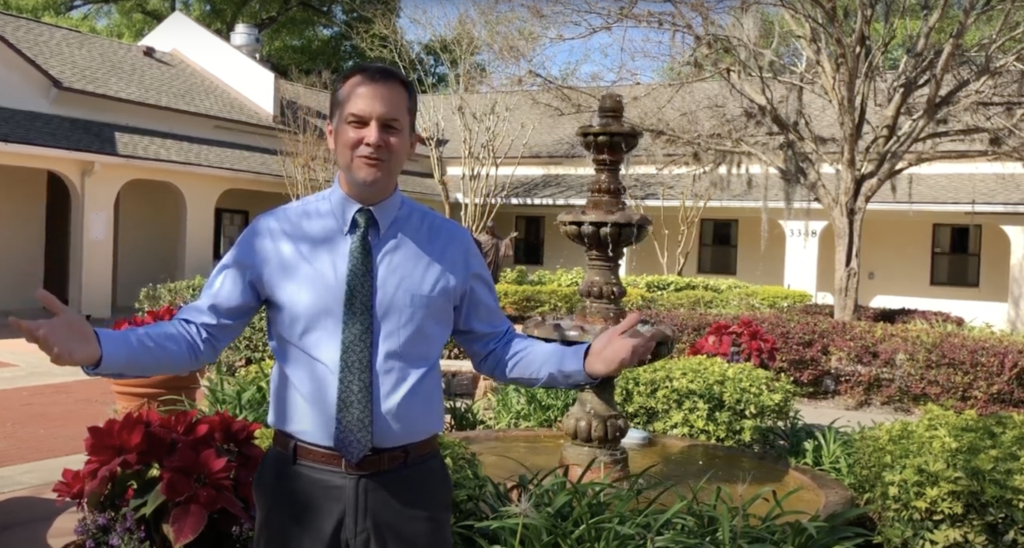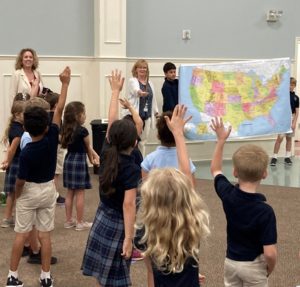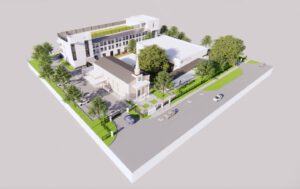Making Christian classical education accessible to all
(reimaginED) – Kevin Clark is a fellow at The Society for Classical Learning. He’s co-author of an influential book about Christian classical education. For 15 years, he taught at a highly…

(reimaginED) – Kevin Clark is a fellow at The Society for Classical Learning. He’s co-author of an influential book about Christian classical education. For 15 years, he taught at a highly regarded classical school in Central Florida, including classes in logic, rhetoric, philosophy and Christian theology.

Kevin Clark
So it’s no surprise that a decade ago, Clark had mixed feelings about the trend lines for classical education. He was gratified to see more families embracing this approach to teaching and learning that anchored Western civilization for centuries. At the same time, it remained out of reach for so many.
“I was telling my friends in my neighborhood and at my church, ‘What my kid is learning (at a classical school) is great. You should try it,’” Clark said.
But then they’d indicate the tuition was too much. “Oh, sorry,” he’d say sheepishly.
With help from an organization dedicated to seeding and scaling innovative private schools, Clark is working to change that. The Ecclesial Schools Initiative envisions an expanding network of affordable Christian classical schools based in churches and catering primarily to families using state-supported school choice scholarships. The early results are impressive.
The Ecclesial School at St. Alban’s opened in this Orlando suburb in 2020.
The first year, it had 38 students in grades K-5.
This year, it has 88 students in grades K-6.
For this fall, it’s already edging close to its capacity of 130 students in grades K-7.
Tuition is determined on a sliding scale, based on family income, and tops out at $10,750. That’s below the average per-pupil spending in Florida district schools. Meanwhile, more than 80% of students offset tuition with choice scholarships, leaving the average actually paid per student this year at $2,561.
“All children need to have an education that prepares them for their calling,” Clark said. “That shouldn’t be available only to families who can afford it.”
The Ecclesial Schools Initiative underscores a number of neat story lines in choice-rich Florida. It highlights the ever-expanding menu of options that manifest when choice becomes mainstream. It shows that when given a choice, many parents opt for a high-quality, knowledge-rich curriculum.
It’s another compelling example of classical education’s comeback. And it offers a glimpse of how education entrepreneurs can get even better traction with a little help.
Clark got vital assistance from The Drexel Fund, a nonprofit philanthropy that helps new private schools take root and blossom. (See some of Drexel’s efforts here, hereand here.) Among other supports, Drexel provided start-up funds, matched Clark to education trailblazers he could learn from, and pushed for rigorous refinement of his business model.

Students begin their day with prayer and song in the chapel led by the church pastor. After chapel, they gather for “recitations,” memorization exercises set to song. While a Christian faith commitment from parents and students is not mandatory, the school does require parents to acknowledge and give their consent for their children to be taught in the tradition of Christian education.
The partnership with churches is key. Spiritually, they help anchor the initiative’s faith component. The St. Alban’s Campus is at Saint Alban’s Anglican Cathedral. Every morning, students begin their day with prayer and song in the chapel, led by the church pastor. Financially, the use of church facilities for a nominal fee is a big plus for affordability.
The Ecclesial Schools Initiative is aiming to open its next campus in fall 2023, with five to seven campuses by 2030. Economies of scale will continue to drive down cost.
The St. Alban’s Campus will grow to at least eighth grade. Expansion into high school is still under consideration.
Like parents at other classical schools, parents at St. Alban’s rave about the curriculum. After chapel, the school gathers for “recitations,” where students giddily roll through memorization exercises set to song – from multiplication tables, to rules for grammar, to months of the year in Latin.
For science, students learn outside, at picnic tables under a truly majestic oak or in a garden lush with pineapples, papaya and other crops they’ve planted. (Clark is quick to note that both Plato’s Academy and Aristotle’s Lyceum were set in gardens.)
The classical emphasis on “great books” courses through everything. Kindergartners are exposed to Shakespeare. Third graders read “The Secret Garden.” Fifth graders read “The Hobbit.”
“Parents are gravitating towards us because they’re seeing their children love learning,” Clark said.
When the principal at another classical school recently quipped that her students read the classics, not “Captain Underpants,” Clark offered a follow up: “There’s nothing wrong with ‘Captain Underpants,’ but is that where the trajectory of Western Civilization is taking us? There’s a feeling of hopelessness in that. Is that all that our children are capable of?”
Melanie Ebersole is both an elementary school teacher and a scholarship parent at St. Alban’s. She and two of her children, Alexa, in second grade, and Buddy, in sixth grade, joined last fall after frustrating experiences at their prior school.
Buddy was not much of an independent reader until St. Alban’s. But now, fed a steady diet of classic works and surrounded by peers who feast on them, Buddy’s literary palette is expanding. As but one example, he just read “Swiss Family Robinson.” It wasn’t assigned. He just wanted to read it.
At dinner, Buddy and Alexa often discuss what they learned in Latin class – this, without prompting from mom and dad – and sometimes speak in Latin. On road trips, they identify bird species they learned in science. At their prior school, “they never came home and talked about things they learned,” Ebersole said. “It was so-and-so did this, and so-and-so did that.”
Jenna Denard and her husband enrolled Anibelle and Macy into St. Alban’s in 2020. They were concerned about Covid risks in their neighborhood school and planned to return the girls, now in second grade, once they felt more at ease. But the educational quality at St. Alban’s was too good to give up.
The girls say prayers in Latin at dinner. They sing songs listing all 50 states. They’ve become pros at identifying plants. “They are academically so far ahead of where I thought they’d be,” said Denard, who works for a non-profit that helps vulnerable children in developing countries. “They’re just learning so much and having so much fun.”
The Ecclesial Schools Initiative is not the only spin on classical education in Florida. The Sunshine State is home to dozens of classical private schools, 15 classical charter schools and probably thousands of classical homeschoolers, including some participating in hybrid home-schools like this one.
Some of the other new models, in Florida and beyond, are also intriguing. Earlier this year, Florida school choice advocate Erika Donalds announced Optima Classical Academy, the world’s first virtual reality charter school. Meanwhile, Great Hearts Academies, the leading classical charter school network, is expanding its online offerings, including, possibly, a low-cost private option.
It will be fascinating to watch how the landscape changes as these strains take root. But don’t be surprised if they all find their niche – and thrive.
This article originally appeared on reimaginED.


